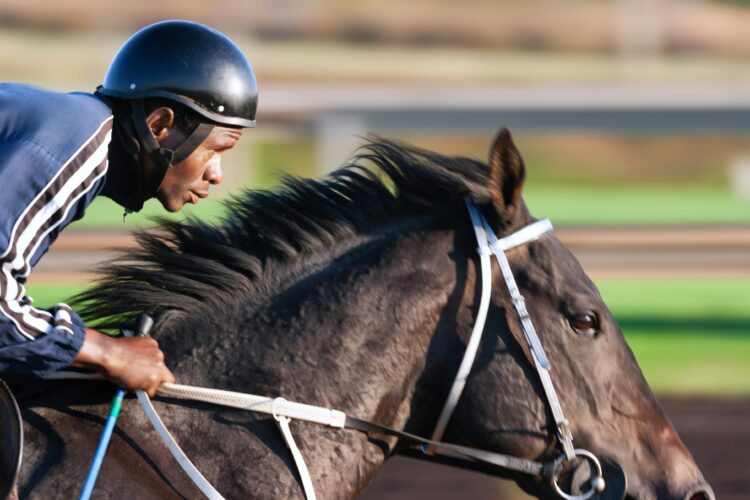Horse racing has long captured the knowing bettor’s interest, but the ‘art’ of betting has dramatically changed. Gone are those days when bets were dominated by hunches and whispers in the stands; today, wagering in the equine industry is irrevocably data-driven. By the time technology and analytics started improving, data became the potential driving tool in shaping the betting strategy. Knowing your stats these days is more than just an edge-it’s a whole new way to bet the horse races. Jump into this article for an overview of the changing world of equine wagering.
Instinct to Insight
Horse betting had once been a gut-style affair, many bettors attesting to instincts that find a winning horse after watching a few races or catching a rumor about prowess. Those days are rapidly becoming ancient history since reams of data are now largely-in-one’s-pocket sources. So today, the statistics flow abundantly on speed ratings, jockey performances and even weather conditions replacing guesswork with informed prediction. With this knowledge in hand, today’s punters are going to revolutionize the style and give some substance to their bets supported by concrete reasoning.
The Key to Predicting Winners
Data regarding a racehorse’s past performance is one of the most valuable resources in modern betting. The bettors now have access to a wide array of data, starting from a horse’s winning percentage to its speed in different track conditions. The rating of the speed is the number depicting how fast a horse has run in prior events and it makes the forecasting by the bettors possible as to whether this horse will be able to repeat its fine show once again. For instance, a horse whose specialty is soft turf may be a good bet if the forecast warns of rain that’s sure to make the track soggy.
Performance data extends further than just the horse itself: what transpired about opposition members or even over distance. This will go some way in giving a bigger picture available by just watching one or two races. This is the current age where a deeper understanding of each horse’s statistical history, concerning betting, is essential.
Rider Performance Analysis
Horses might be the headliners, but jockeys play an important role in most punter decisions. A good jockey will often be the difference between a horse winning and merely being an also-ran. That is why punters now probe deeper into the jockeys’ win rates, experience on specific tracks and their historical performance with certain horses.
Some jockeys develop reputations for shining on particular courses or over specific distances, while the identity of a horse’s rider often proves crucial when it comes to betting decisions. A jockey’s strategies from the front or swooping late prove all-important in providing punters with an edge. After all, even the best horse will struggle if it doesn’t have an accomplished pilot.
Trainer Expertise
Trainers are still definitely behind-the-scenes wizards in the horse racing world, getting horses ready for their specific race day one way or another. Some trainers do quite well at conditioning horses for specific tracks or events and some do better at bringing underperforming horses up to speed. The most serious bettors have made it common practice to consider a trainer’s track record.
Being aware of the trainers who regularly produce winners can add a different flavor to how bets are set. If a trainer has a history of bringing out the best in their horses in endurance races, then his entry into a longer event may well signal an opportunity for a well-placed bet. The horse’s potential on race day speaks volumes through their trainer’s previous history of success.
How Track Conditions Influence the Outcome
With much of the limelight taken up by horses and jockeys, one could never leave out mentioning the race track itself. On any given day, just the conditions of the track-meaning it could be firm, soft or anywhere in between large differences within horses’ performances. There, those bettors who know how different surfaces are going to affect a horse’s ability to keep speed or stamina often prove to be at an advantage.
A fast, dry track may favor horses with strong closing speed, where muddy or rain-soaked conditions may shift the advantage to those known for endurance. Even the lane in which a horse starts makes a difference, considering some lanes in history offer better odds for victories. Considering this set of variables, every decision by a bettor can be tailored to the specific conditions they are facing.
The Power of Predictive Models
With time, however, data collection has become even more sophisticated-in other words, predictive analytics are finding their way into equine betting. Algorithms now analyze a ton of past performances, environmental factors and even betting trends to predict the odds of different race outcomes. Such predictive models about the probability of a horse finishing in this or that position use complex patterns.
Predictive analytics afford a more strategic edge to the bettors. In cases where models are relied upon, it could hint at opportunities wherein a horse has been underestimated by odds set by bookmakers. These, juxtaposed with personal insights, form a unique layer of intelligence that extends the revolution in knowledge and the art of betting.
Conclusion
The logic of betting on the horse racing world has come a long way from simply going with a favorite horse based on a hunch. Today, data and statistics are at the forefront, giving the bettor more detail-oriented insights that will help in calculating the best wager. From performance data analysis and jockey records to track conditions and predictive models, modern betting is based on numbers. But with data-driven insights, now the bettors go with smarter, more strategic choices, thus making horse racing all the more thrilling and an experience to reckon with.






















